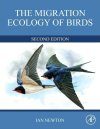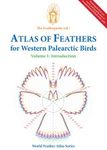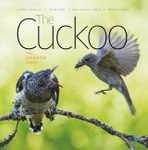About this book
The Migration Ecology of Birds, second edition covers all aspects of this absorbing subject, including the migratory process, the problems of navigation and vagrancy, the timing and physiological control of migration, large scale movement patterns and their evolution, the effects of recent climate change, the particular problems that migrants face and the factors that limit their populations. It provides a thorough and in-depth review of the state of the science, with the text supplemented by abundant tables, maps, and diagrams. Written by a world-renowned avian ecology and migration researcher, this book reveals the extraordinary adaptability of birds to the variable and changing conditions across the globe, including current climate change. This adventurous book places emphasis on ecological aspects, which have received only scant attention in previous publications. Overall, the book provides the most comprehensive and in-depth appraisal of current information available and updated insights. The Migration Ecology of Birds is the most updated and detailed review of bird migration, its evolution, ecology, and bird physiology, following on the first edition's success as the fundamental resource for researchers worldwide. Written in a clear and readable style, this book appeals not only to migration researchers in the field and ornithologists, but to anyone with an interest in this fascinating subject.
Contents
1. Introduction
2. Methodology
Part 1. The Migratory Process
3. Migratory flight
4. Weather effects and other aspects
5. Fueling the flights
6. Incredible journeys
7. Raptors and other soaring birds
8. Migration speed, stopovers and duration of journeys
9. Finding the way
10. Vagrancy
Part 2. The timing and control of migration
11. Annual cycles
12. Control mechanisms
Part 3. Large scale movement patterns
13. Geographical patterns
14. Seasonal occupation of breeding areas
15. Sex and age differences in migration
16. Variations on a migratory theme
17. Site fidelity and dispersal
18. Irruptive migrations: boreal seed-eaters
19. Irruptive migrations: owls, raptors and waterfowl
Part 4. Evolution of movement patterns
20. Evolutionary aspects
21. Recent changes in bird migrations
22. Biogeographical legacies
23. Distribution patterns
Part 5. Migration systems and population limitation
24. The Palearctic-Afrotropical Migration system
25. The Nearctic-Neotropical migration system
26. Population limitation - breeding and wintering areas
27. Population limitation - conditions on stopover
28. Mass mortality of migrants
Customer Reviews
Biography
Dr Ian Newton is respected worldwide both as a biologist with a special interest and expertise in this subject and as a communicator. He is a seasoned and popular keynote speaker at National and International meetings, and his talks are often the high point of conferences. Ian Newton was born and raised in north Derbyshire. He attended Chesterfield Boys Grammar School, followed by the universities of Bristol and Oxford. He has been interested in birds since boyhood, and as a teenager developed a particular fascination with finches, which later led to doctoral and post-doctoral studies on these birds. Later in life, he became known for his penetrating field studies of bird populations, notably on raptors. He is now a senior ecologist with the Natural Environment Research Council and visiting professor of ornithology at the University of Oxford.
He has published more than 200 scientific papers on birds, and several books, including Finches (1972), Population Ecology of Raptors (1979), The Sparrowhawk (1986), and Lifetime Reproduction in Birds (edited, 1989). He has served as President of the British Ecological Society, Vice-president of the British Ornithologists' Union, and is an honorary member of the American Ornithologists' Union. He has received several prestigious awards for research and conservation and was elected Fellow of the Royal Society in 1993. He is married and has two sons and a daughter.


































